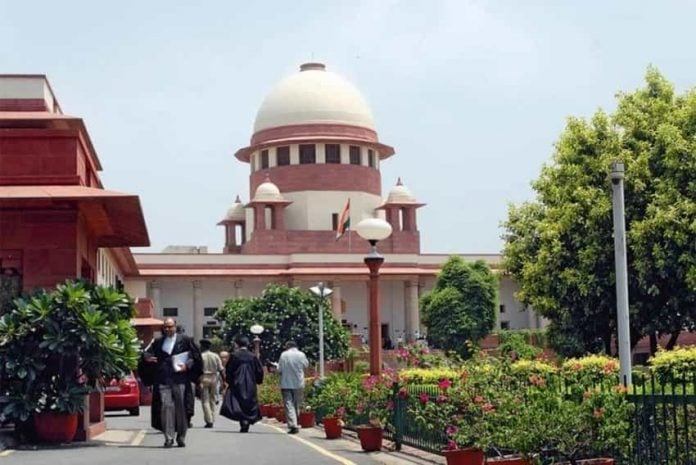A plea has been filed in the Supreme Court seeking directions to Centre, States and Union Territories to establish Special Anti-Corruption Courts in every district to decide cases relating to black money, benami property, disproportionate assets, bribery, money laundering, tax evasion, and other economic offences within one year.
The plea filed by Advocate Ashwini Kumar Upadhyay has sought recalling of currency above Rs 100 and restriction on cash transactions above Rs 5,000 as means to curb corruption.
According to the petitioner, rule of law and other rights guaranteed under the Constitution including right to equality, right to health, right to peaceful sleep, right to shelter and livelihood, etc cannot be secured without curbing corruption and black money generation but Centre hasn’t taken any steps to weed out these menaces.
Therefore, clean governance is impossible without recalling currency above Rs 100, restricting cash transactions above Rs 5,000, linking assets above Rs 50,000 with Aadhaar and confiscating cent percent black money, benami properties and disproportionate assets and awarding life imprisonment to looters. Cash transaction in high value currency is used for illegal activities like terrorism, Naxalism, separatism, etc. and inflates price of essential commodities as well as major assets like real estate, gold etc. The petitioner has suggested the following measures that should be followed to curb these problems and ensure clean
- Recalling currency above Rs 100
- Restricting cash transaction above Rs 5000
- Linking assets above Rs 50,000 with Aadhaar
- Confiscating cent percent black money, benami property and disproportionate assets
- Awarding life imprisonment
The plea has stated that following these measures would be beneficial as the looters would be forced to declare their unaudited fixed-movable assets and deposit their cash in bank which will result in, Centre, States and Local Bodies getting sufficient revenue, which can be used to develop good quality infrastructure and best facilities throughout the country and for the welfare of the citizens.
The Supreme Court had in October 2020 dismissed Ashwini Kumar’s plea seeking direction to the Centre to ascertain the feasibility of confiscating cent percent Black Money, Benami Properties and Disproportionate Assets and awarding Life Imprisonment in offences relating to bribery, black money, benami property etc. A three-judge Bench of Justices SK Kaul, Dinesh Maheshwari and Hrishikesh Roy had granted him liberty to approach the law commission.
The petitioner filed the plea seeking direction to the Law Commission of India to examine and publish the best anti-corruption laws of the world, particularly the most effective provisions related to bribery, black money, benami property etc.
Also Read: Punjab and Haryana HC directs govt to submit report in suicide attempt by Gurugram jail inmate
According to the petitioner, the cause of action accrued on January 24th 2020, when corruption watchdog Transparency International put India at 80 in Corruption Perception Index. Due to weak and ineffective anti-corruption laws, India has never been ranked even among top 50 in Corruption Perception Index but Centre has not strengthened them to weed-out the menace of corruption, which brazenly offends rule of law as well as right to life, liberty, dignity, guaranteed under Articles 14 and 21.


